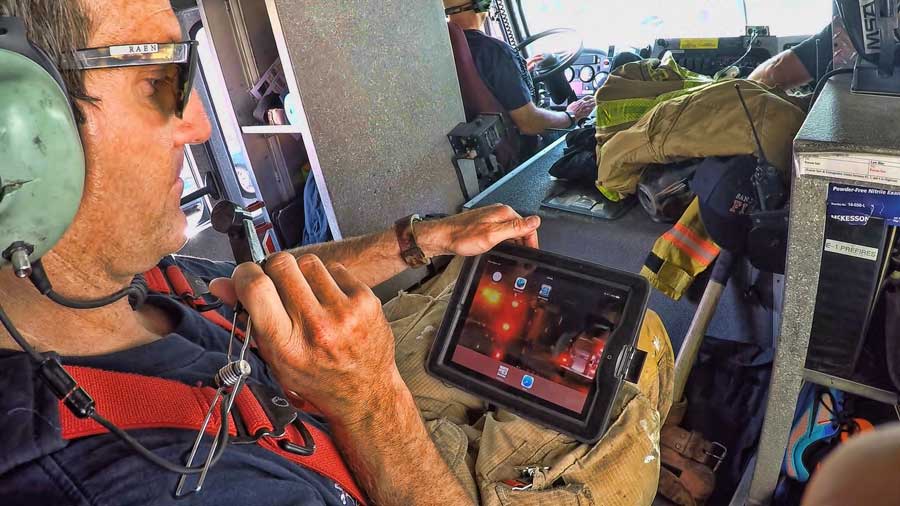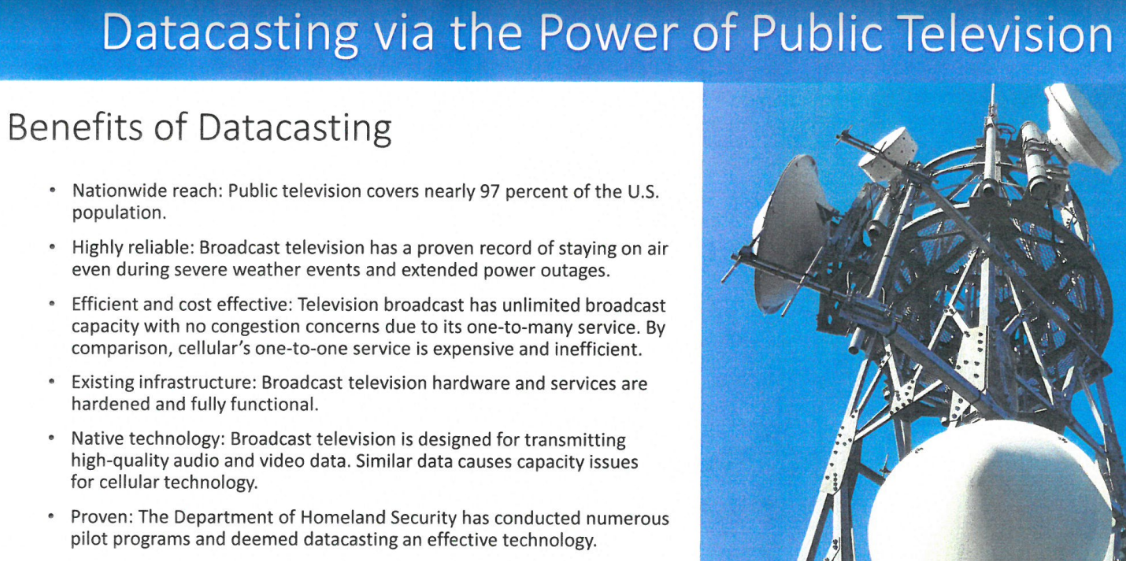Public TV Stations Push FCC to Mandate FirstNet Datacasting Interoperability

The smarter way to stay on top of broadcasting and cable industry. Sign up below
You are now subscribed
Your newsletter sign-up was successful
Public TV stations say they have been trying to get FirstNet and the carrier whose network it is running on, AT&T, to make the broadband first responder communications network interoperable with broadcast datacasting, made possible thanks to ATSC 3.0, but with no luck so far.

They want the FCC to get involved to make it happen.
Related: ATSC 3.0 Amplifies the Potential of Broadcast TV
That came in a meeting between APTS execs and staffers with the FCC's Public Safety and Homeland Security Bureau, according to a document summarizing the meeting.
They told the FCC that they have been trying for several years to work with both to integrate datacasting into the FirstNet "ecosystem," including committing to 1 Mbps of spectrum to FirstNet.
Related: FCC Opens Door to Next-Gen TV
They say that datacasting allows first responders to quickly share secure data--text and video--to a "select audience," with unlimited capacity and no congestion concerns. That's because the one-to-many architecture allows for TV signals to also deliver encrypted, targetable IP to first responders.
The smarter way to stay on top of broadcasting and cable industry. Sign up below
That is thanks to the government-licensed spectrum of public television backed by "'billions of dollars' worth of hardened facilities" including in rural America, which has been built out thanks in part to government money.
But there's a catch.
"While several exploratory meetings have been held among the parties over the past four years to discuss such cooperation," they told the FCC, "to date neither FirstNet nor AT&T has been willing to open serious discussions with APTS on a way forward to integrate public television datacasting technology into the FirstNet ecosystem."
APTS indicated it would prefer working cooperatively with AT&T and FirstNet, but absent that, "AT&T, the Commission may wish to engage through oversight or other action to ensure that the nation’s first responders have the full benefit of public television’s datacasting capability," they said, perhaps by mandating ATSC 3.0 chips in all public safety devices, as South Korea has already done.
"Even assuming that FirstNet and AT&T are correct that they are not required to do more than they are currently doing to integrate other public safety networks and services" into their network, APTS said. "The Commission should examine whether this interoperable arrangement is satisfying the needs of public safety users, particularly in rural areas where FirstNet/AT&T coverage may be lacking."
Closing the rural divide, including for lifesaving healthcare, is a priority for FCC Chairman Ajit Pai, who is from a small town in Kansas.
Spokespeople for AT&T and FirstNet had not provided comment for this story at press time.
FirstNet was created in the legislation that authorized the FCC's broadcast incentive auction and was funded by proceeds from the FCC's AWS-3 auction, and would have been funded with incentive auction money had the AWS-3 auction not more than covered the cost.
Back in March 2017, AT&T won the multi-billion dollar, 25-year contract to build and maintain FirstNet, which was proposed by the 911 Commission well over a decade ago following first responder communication failures during the World Trade Center rescue efforts.
Contributing editor John Eggerton has been an editor and/or writer on media regulation, legislation and policy for over four decades, including covering the FCC, FTC, Congress, the major media trade associations, and the federal courts. In addition to Multichannel News and Broadcasting + Cable, his work has appeared in Radio World, TV Technology, TV Fax, This Week in Consumer Electronics, Variety and the Encyclopedia Britannica.

